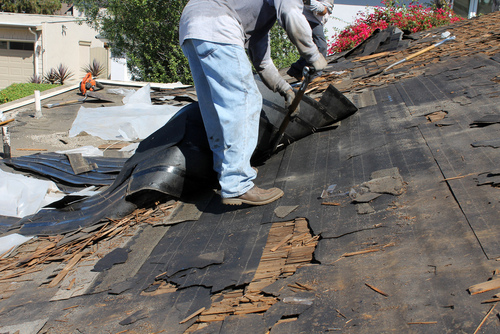This month we begin a new series: debunking common roofing myths. First we’ll tackle the common misconception that it’s ok to simply lay a new roof over an existing one.
Placing new roofing material over old, known as overlaying or re-roofing, can seem like a convenient and cost-effective solution, but it comes with several potential drawbacks:
Added Weight
Layering new roofing material over old adds significant weight to the roof structure. This additional weight can stress the underlying roof framing, potentially leading to sagging or even structural failure over time.
Reduced Lifespan
The underlying issues with the old roof, such as damaged or deteriorating materials, are not addressed by simply covering them up. Over time, these problems can worsen, shortening the lifespan of the new roofing material and necessitating premature replacement.
Hidden Damage
By covering up the old roofing material, any existing damage or issues with the underlying roof structure, such as leaks, rot, or mold, may be hidden from view. This can lead to ongoing problems that go unnoticed until they become severe and costly to repair.
Decreased Energy Efficiency
Adding another layer of roofing material reduces the effectiveness of insulation and ventilation systems. This can result in reduced energy efficiency, as heat transfer is less effectively managed, leading to higher heating and cooling costs.
Potential Code Compliance Issues
Building codes and regulations may limit the number of roofing layers allowed on a structure. Overlaying new material over old may put the roof out of compliance with these regulations, leading to potential fines or requirements for corrective action in the future.
Aesthetics and Property Value
Multiple layers of roofing material can detract from the appearance of a home and decrease its curb appeal. Additionally, when it comes time to sell the property, potential buyers may be wary of purchasing a home with multiple layers of roofing material, potentially lowering the property value.
In summary, while overlaying new roofing material over old may seem like a quick and inexpensive fix, it often leads to more significant problems in the long run. It’s generally better to remove the old roofing material and address any underlying issues before installing a new roof to ensure the best performance, longevity, and safety of the roof system.
To find out your options for effective roof replacement, contact us at JA Edwards of America.

